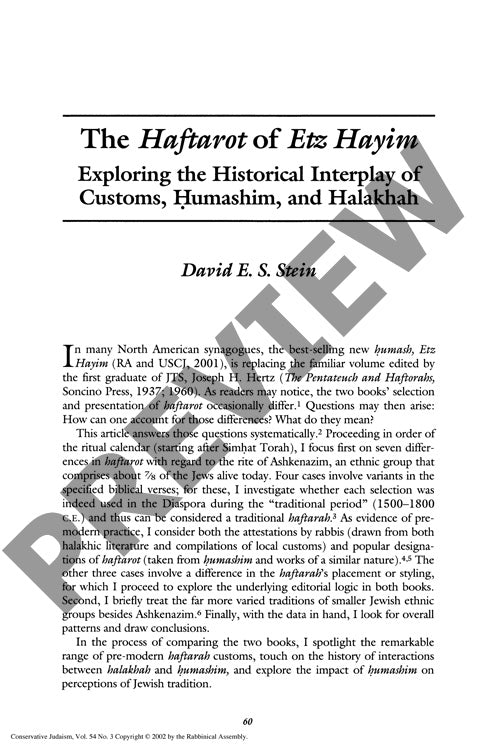The Haftarot of Etz Hayim Exploring The
Couldn't load pickup availability
Contrary to popular assumptions of Jewish liturgical uniformity, traditional haftarah selections exhibited remarkable diversity across communities and time periods. Between 1500-1800 CE, approximately 90 percent of haftarah-reading occasions saw different Jewish communities reciting significantly different prophetic passages, often from entirely different biblical books. Through analysis of seven divergences in Ashkenazi practice between the contemporary Etz Hayim (2001) and classic Hertz edition (1937/1960), alongside brief treatment of other Jewish ethnic groups, the historical authenticity of varying haftarah traditions emerges in sharp relief. Examination of halakhic literature, compilations of local customs, and historical humashim reveals that both Etz Hayim and Hertz present historically attested selections, though each represents only a fraction of the actual diversity that existed. The complex interplay between halakhic literature and humash publishing traditions demonstrates how printed works have both reflected and shaped liturgical practice. This analysis challenges conventional notions of standardized traditional practice, illuminating how variance rather than uniformity has historically characterized haftarah selections across Jewish communities.

More Information
-
Physical Description
-
Publication Information
Published
ISBN
-
Publication Credits
David Stein

